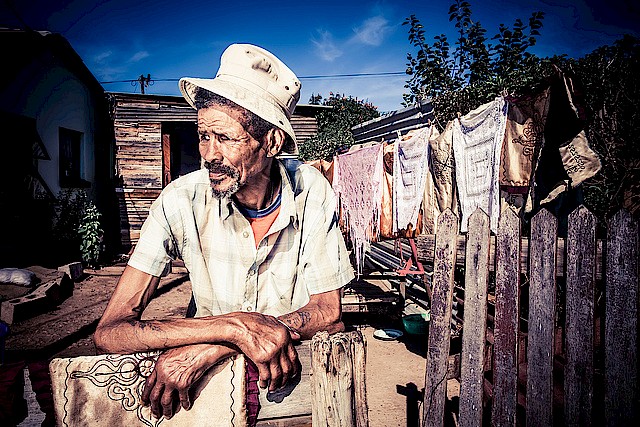Health disparities in ageing
—
The ongoing economic crisis has strained government coffers, and people around the world have become increasingly vulnerable to the exclusionary practices of a capitalist-inflected health care system. Millions are still without basic care, and older persons and people with pre-existing conditions, disabilities, and mental illnesses are often victimized. In this landscape, medical anthropologists who study ageing in cultural context are investigating not only the political economy and ageism of medical systems, but also how older persons navigate and cope in different contexts. What are the strategies, conditions, and operating frameworks for particular groups and communities of older adults?
To discuss these questions and anthropologists’ role in addressing health disparities in ageing, the Association for Anthropology and Gerontology (AAGE) held its annual conference on 5–7 February 2015 at Florida International University (FIU) in Miami. The conference, entitled ‘Health Disparities in Aging’, was attended by scholars from Sweden, Denmark, Canada, and seven different states of the United States. AAGE is a global network of educators, students, scholars, researchers, and professionals working to understand the ageing process and the lives of older persons around the world.
Dr Unni Karunakara, the former international president of Doctors Without Borders, presented a keynote address entitled: ‘The Neglect of Older People in Humanitarian Response’. Dr Karunakara stated that older adults suffer from a lack of access to humanitarian aid, and for diverse reasons. This is compounded by the aid community’s lack of documented knowledge about older adults and their needs, and the absence of guidelines for managing chronic disease and nutrition. Dr Karunakara spoke of the need to document such needs through age-disaggregated data and operational research on how to reach the older adult population in different settings. Not only do older people need particular assistance, but they can also prove to be a valuable resource in terms of providing community histories and locating kin.
Anthropological contributions to the future of health and ageing research
The first day and a half of the conference showcased the next generation of anthropological scholars of ageing, with students engaging in one-on-one mentorships with senior anthropologists from AAGE. Fayana Richards, a doctoral student at Michigan State University, for example, is looking at the intersection of social identities and the welfare system around the issue of grandmothers raising grandchildren in Detroit, tackling both policy issues and how ‘kinship care’ is conceived of and practiced in diverse situations. Erika Carillo, also working in Detroit, is exploring senior shopping days as a means of securing adequate food in a ‘food desert’ and ‘keeping business local’. She asks, ‘What does the anthropology of food have to contribute to the anthropology of ageing?’
Daina Stanley, a doctoral student in medical anthropology at McMaster University, is applying community-based participatory principles to her ethnographic study of health, ageing, and care on California’s death row, an important topic given the simultaneous growth and ageing of the prison population. Megan Stamey McAlvain, a graduate student at New Mexico State University, is evaluating cultural competency in graduate geriatric medicine programs in the western United States, utilizing the notion of explanatory pluralism in the medical sciences.
A number of papers examined ageing outside the United States, including in Sweden, Costa Rica, and South Korea. Lisa Strandroos, a doctoral student at Linkoping University, presented a case study on multilingual and institutional interaction in a dementia care facility in Sweden. Her research raises important issues about communication in care settings where staff and patients do not always share common cultural and linguistic backgrounds. Tony Pomales presented his ethnographic research on ageing female sex workers in Costa Rica, a population triply marginalized by trade, gender, and age. Focusing on their low pay, diminishing clientele, and few formal or informal sources of support, Pomales’s work highlights how neoliberal adjustment to the economy impacts these older women. Finally, Christine Moon is commencing work on rural ageing in Korea in the context of westernization, urbanization, and migration, building on her earlier work on the ideal end of life for South Koreans in Toronto.
The second day of the conference was dedicated to addressing health disparities through the application of anthropological theory and knowledge in diverse professional settings. Special guest Marsha Jenakovich from the Alliance on Aging, Inc., a Miami-based agency, spoke about applying anthropological research in the policy arena, and the challenges of balancing a critical (and holistic) perspective with initiating change in governmental agencies. Several scholars and mentors deliberated on the importance of applying anthropology in contexts of health care services. Beyond the task of culture and knowledge translation, the group agreed that anthropologists could (and should) help health professionals rethink particular categories and relations that may actually point towards a better quality and ethics of care.
By the end of the conference, one theme stood out among several. There was recognition that ageing and the life course are not just moralized issues – rather, people grow old and face various challenges within moral worlds and communities, often of their own making. As Lori Jervis related to us in her presentation on the second day of the conference, some older white Southerners take on the role of caretakers/landlords of purple martin birds, and in doing so they continue to make meaning and well-being despite what society tells them.
